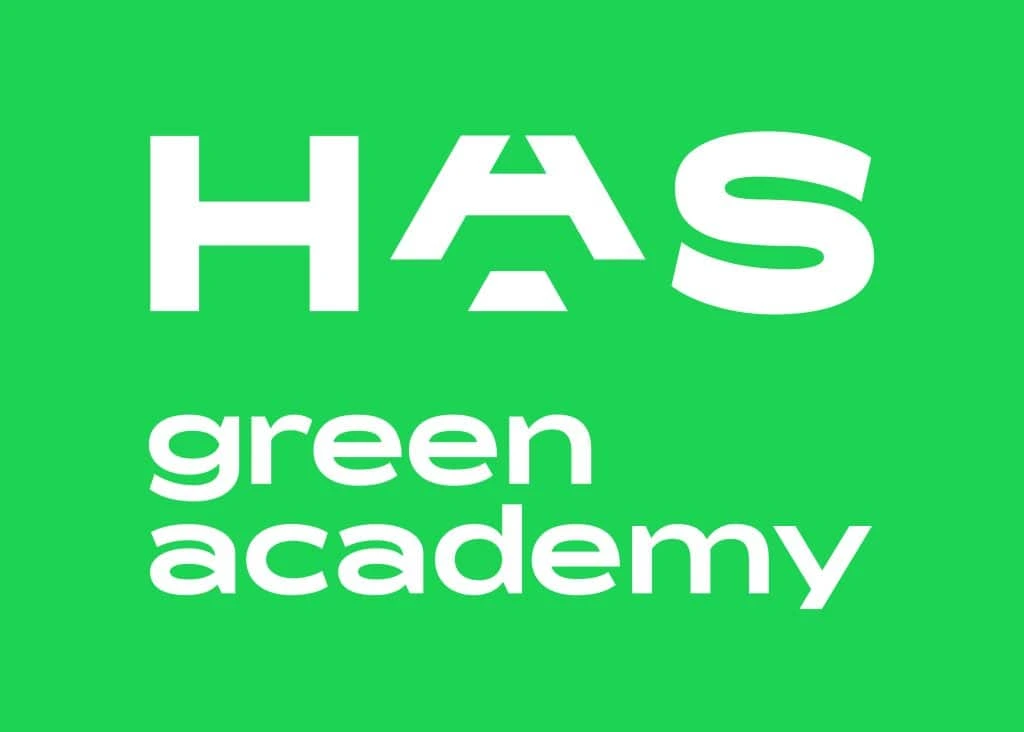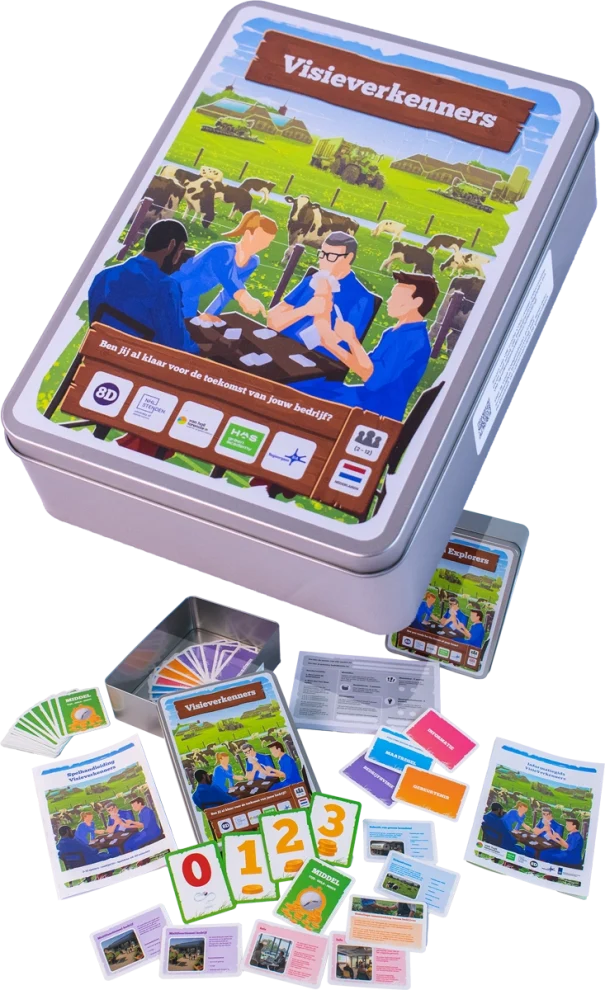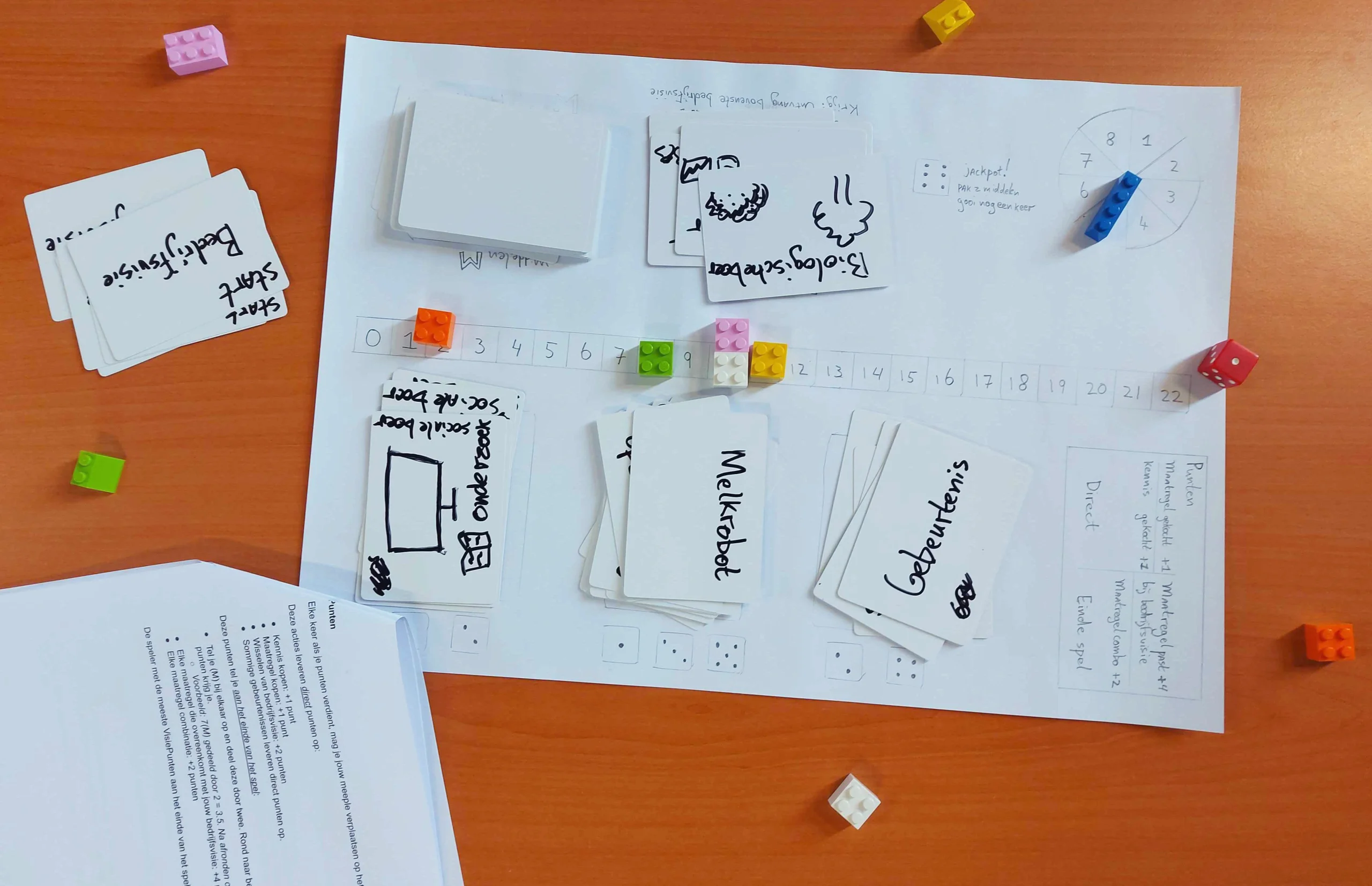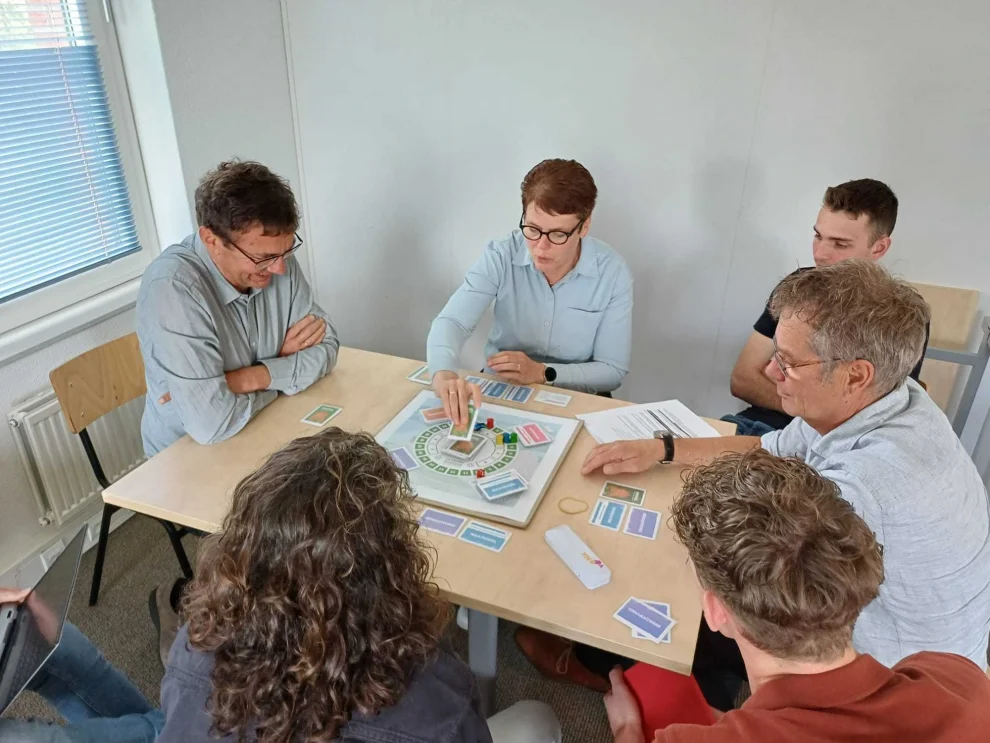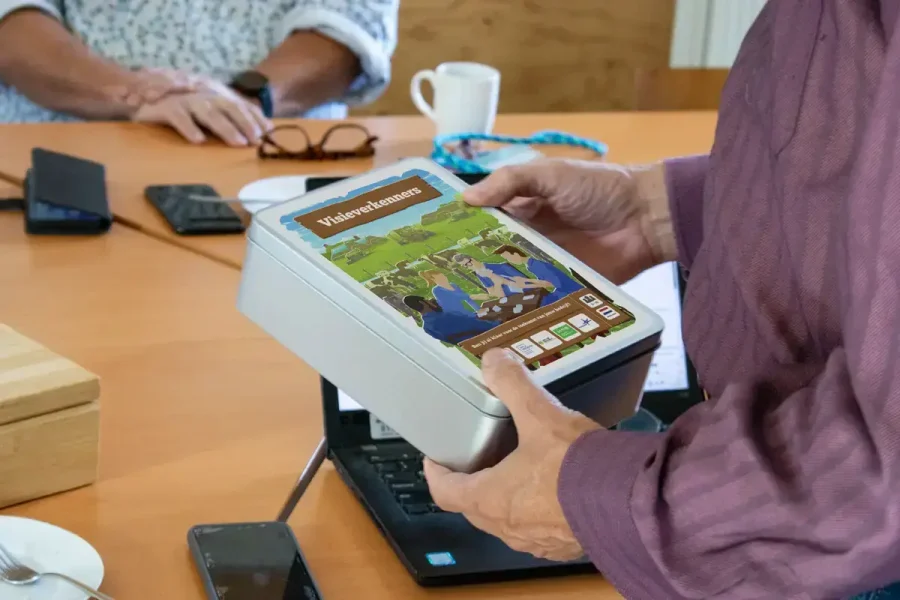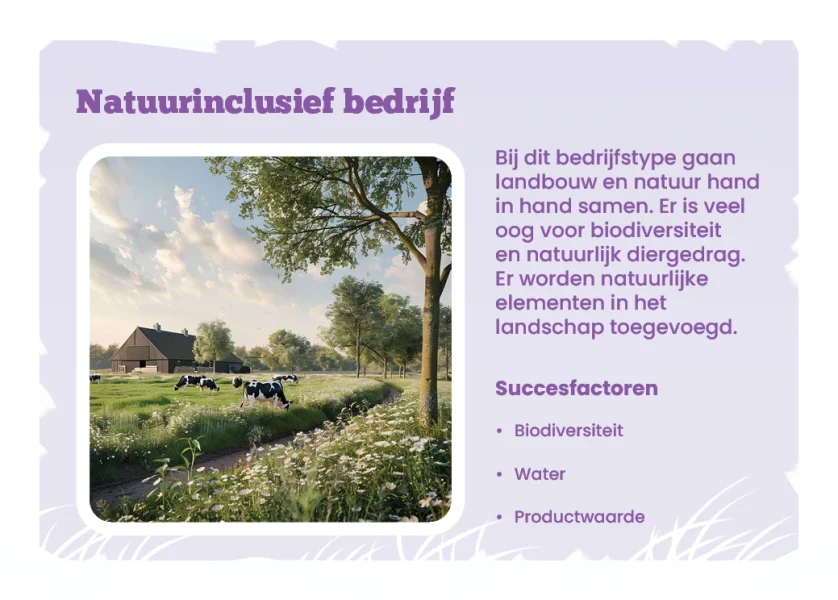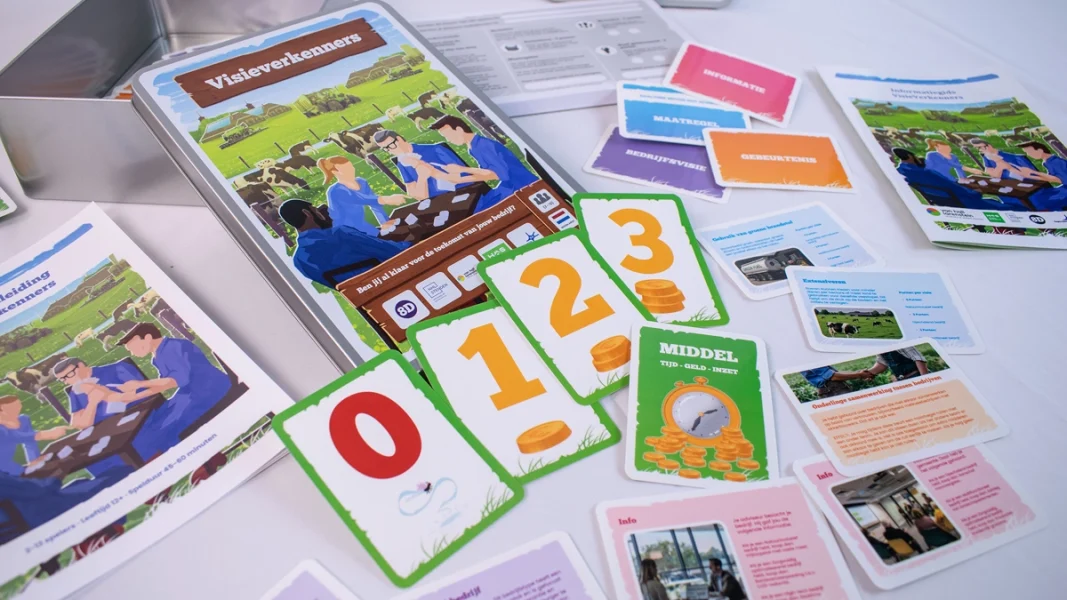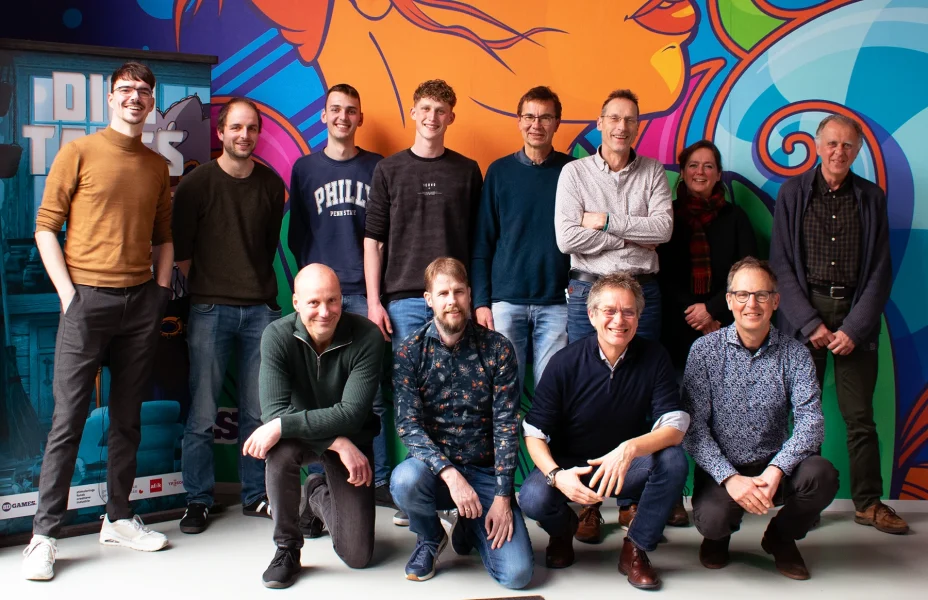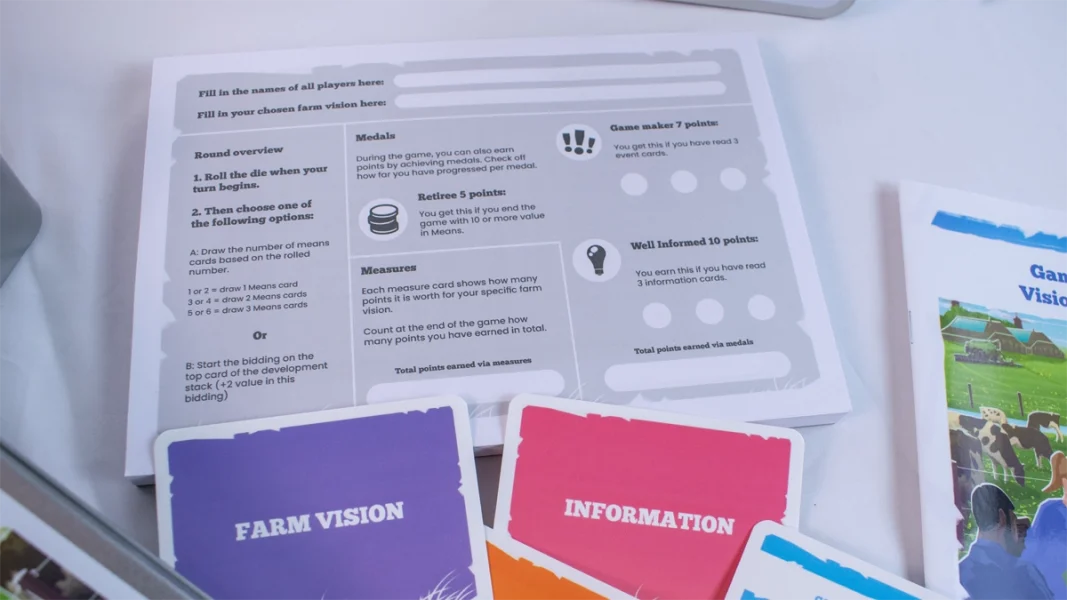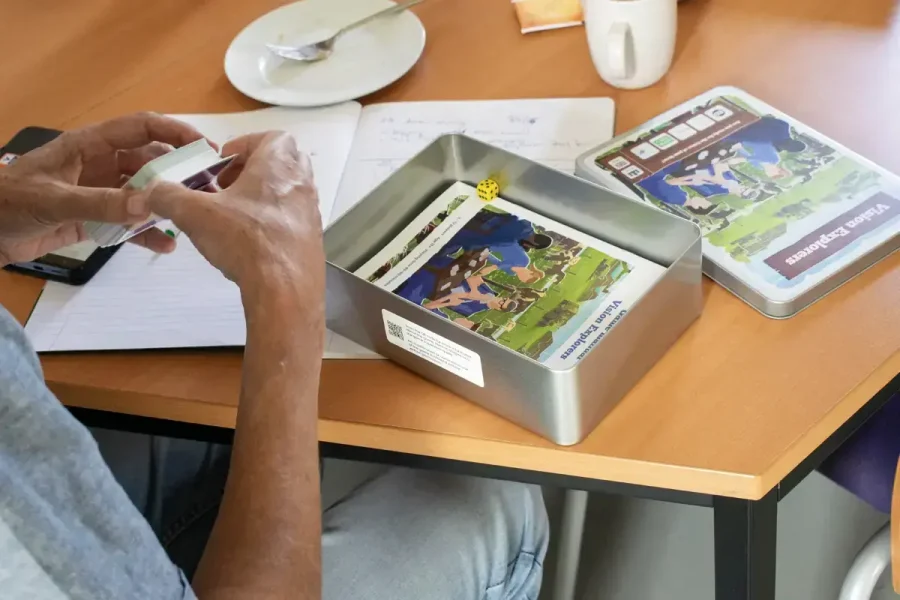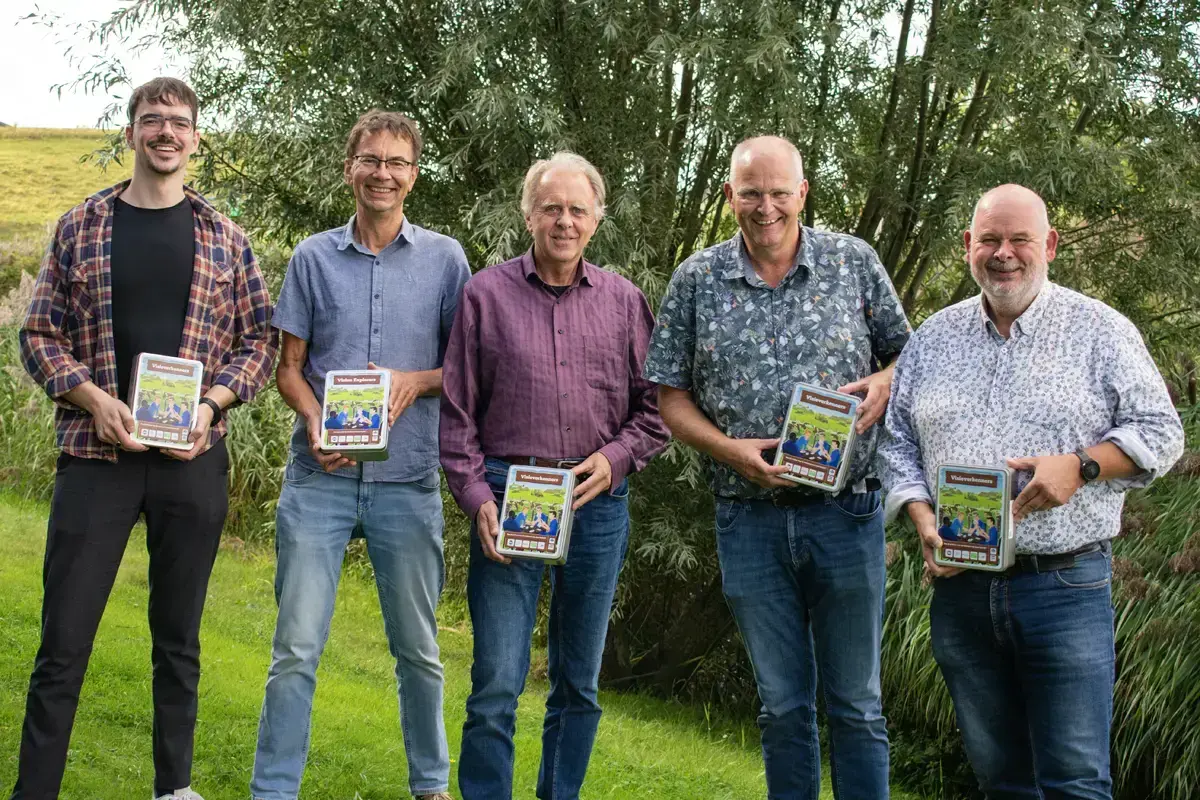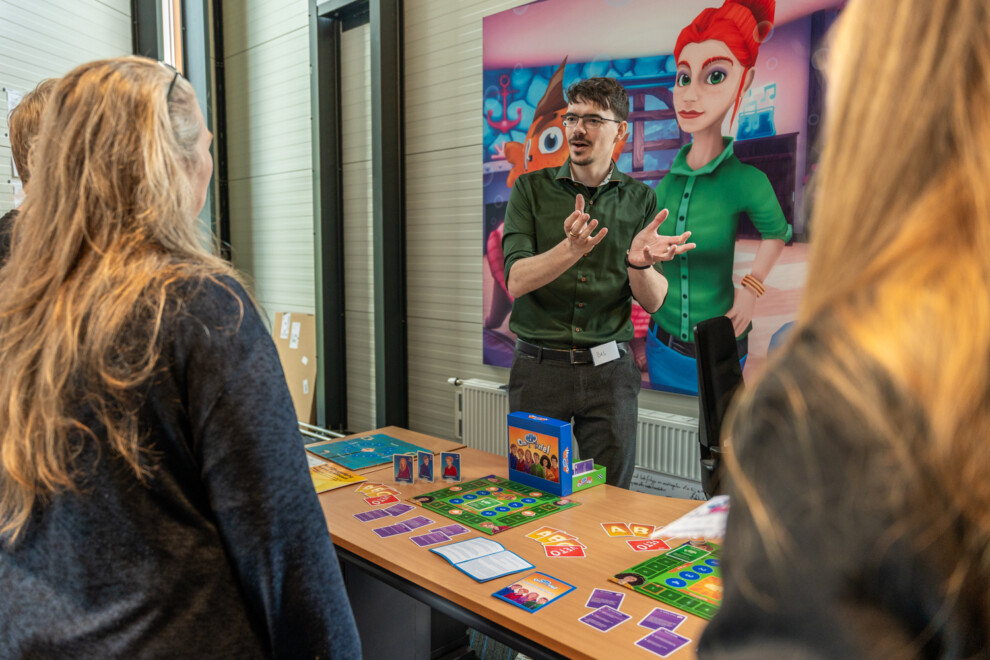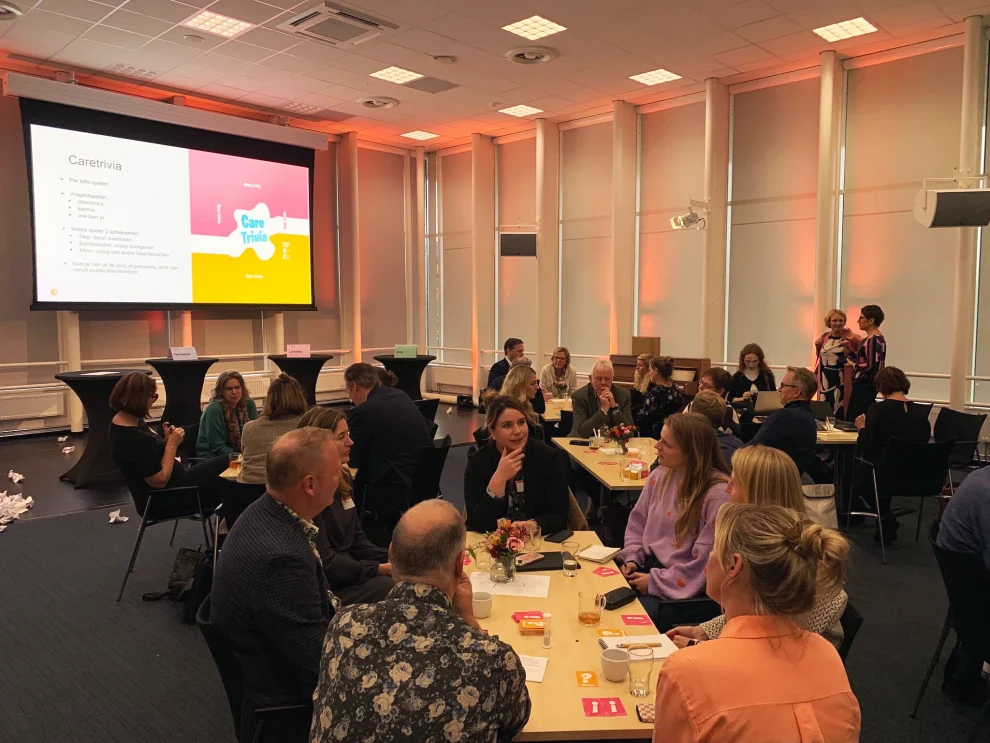Approach
The project initially began with the idea of developing a digital simulation tool. The aim was to allow farmers to explore the effects of different climate measures on a model of their farm, considering aspects like financial impact, animal welfare, environmental performance and social acceptance.
During a brainstorm session led by 8D, with students and project partners, it became clear that this concept had major limitations. A simulation of this kind would rely on precise, up-to-date data on costs, policy frameworks, and the interaction between many complex factors—exactly the kind of information that changes constantly. The approach turned out to be too rigid, too complex, and too dependent on external variables. There was a risk that the tool would become outdated quickly and lose its relevance, while also requiring significant investment to maintain.
This realisation led to a shift in direction. Together, we explored alternative formats. Students from the Master’s in Serious Gaming created several prototypes, each testing different ideas. One of these focused on the idea of trade-offs: if you add something in one area, you have to give something up in another.
Through this prototyping phase, a key insight emerged: rather than simulating outcomes, the game should start from the perspective of the farmer’s own vision. What matters to them? What kind of future do they see for their business? When those questions are explored first, decisions about climate measures gain context and meaning.
8D analysed the results from the research and prototyping phase and helped translate them into a grounded game concept through a series of iterative design steps. After each test, we refined the mechanics, tone, and usability. How much information is useful? At what point does it become overwhelming? And how do you keep the game engaging while still allowing for depth?



